
When you need residential electrical services, it can be tough to follow what is going on with your electrical system if you aren’t sure what your electrician is saying.
While you can always ask your trusty HedgeHog Electric electrician to explain, here are 12 electrical terms all homeowners should know so that you can identify what the issue with your home may be when you need electrical help.
1. CIRCUIT
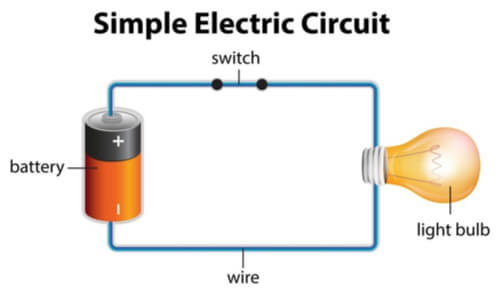
The flow of ever-present electricity in your home is made up of various circuits, which are in connected loops of electricity-conducting wires. These wires start and end at the electrical panel, and while the breaker is in the ON position, the circuit’s connection and power flow will be maintained.
2. SERVICE PANEL / ELECTRICAL PANEL
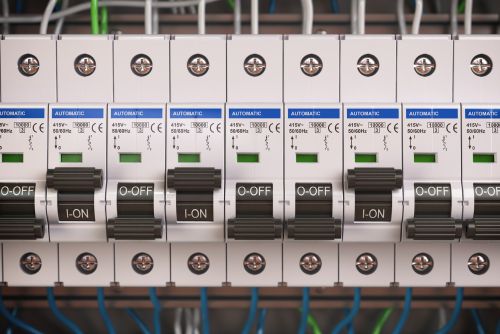
There are many names for the electrical panel, from the service panel to the breaker panel. In homes, this panel can have upwards of a couple of dozen of switches called circuit breakers while there can be far more in commercial buildings.
The electrical panel is critical to your home’s safety, as the circuit breakers will trigger when a circuit’s electrical draw is too high, cutting off the flow of electricity. With this cut-off, your home is better protected from electrical fires.
3. CIRCUIT BREAKER
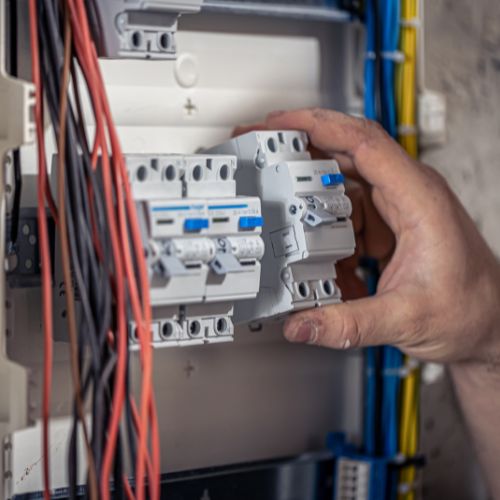
As we mentioned, the circuit breaker is a switch on the electrical panel. These switches connect the flow of electricity to their dedicated circuit. Often, a large room in the house such as the kitchen will have at least two dedicated circuit breakers as kitchens often have appliances that draw high amounts of energy.
These switches can go bad and need to be replaced by one of our electricians to ensure that your home is continually protected.
4. JACKET
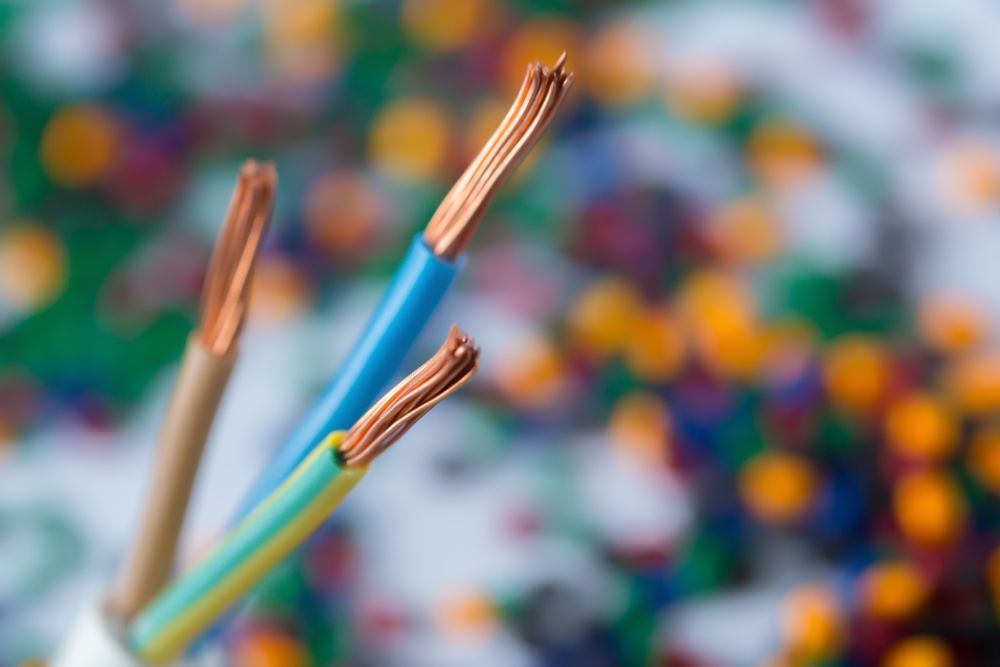
When one of our electricians is diagnosing an issue with your home’s wiring, they may refer to the jacket of the wiring. The jacket is simply the outer covering of the wire, usually, a rubberized material that does not conduct electricity so that the conductive wiring can be directed in orderly circuits.
5. VOLTAGE
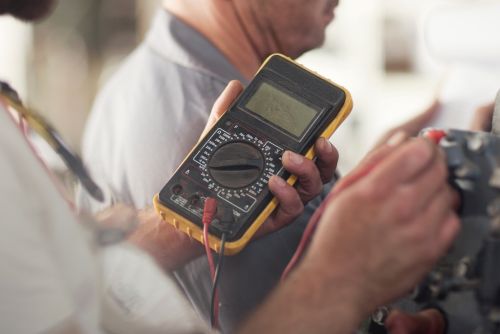
Voltage (V) is the pressure or force of electricity that drives electricity through your electrical system. Your average outlet will put out 120V of electricity. With a specialized tool, the voltage can be measured and corrected if it is too high or too low. In comparison, some commercial properties and ranches have high voltage—aka electrical force—fences of anywhere from 2,000V-10,000V to protect their property.
6. DIRECT CURRENT
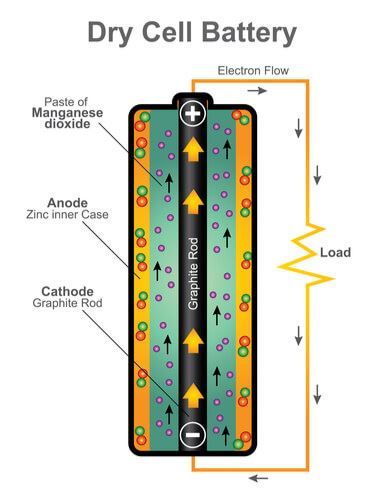
While a direct current needs an unbroken flow of electricity, this type of current produces a one-way flow of electricity that does not change direction. One of the easiest examples of direct currents is batteries, where the battery charges a device but does not receive energy in return.
7.ALTERNATING CURRENT
An alternating current is an electrical current that will reverse the direction of its electrical flow regularly. This type of current is what utility companies provide to power homes and businesses.
8. WATT
When electricians talk about how much electrical energy is being used, you will likely hear the term watt or wattage thrown around. A watt is simply a unit of measurement that is used to define how much electrical energy is consumed in a second.
Items with high wattage, like incandescent light bulbs, will expend more energy, while low wattage LED bulb will cost you far less to use.
9.KILOWATT-HOUR (KHW)
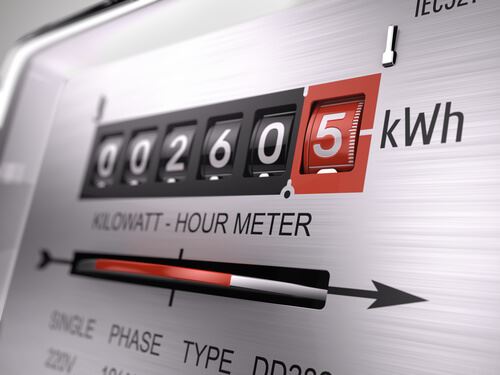
Another measurement of energy is the kilowatt-hour (kWh). This measurement helps to measure larger amounts of electricity usage, as one kWh equals 1,000 watts. Often, your home’s utility bills are measured in how many kWhs are used in a billing period.
10. LUMEN
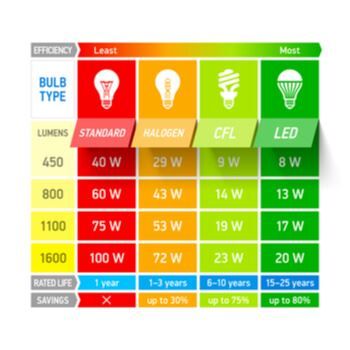
Often, people think that the wattage of a bulb indicates how bright the light bulb will be when used. In reality, what you want to look at is the lumens of the bulb.
A lumen is a measurement that measures the brightness of the light bulb you are looking at putting in. A bulb that has a high amount of lumens will provide a greater amount of light.
11. GROUND
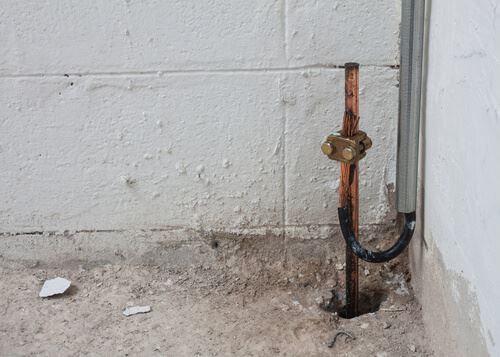
To provide your home or commercial property with a safe place to dump electrical energy, a special type of wiring called a ground connects your electrical system to the earth. If you have older wiring or outlets, you may lack critical ground wires, and it is best to call in our electricians to install the proper wiring and grounded outlets.
12.GFCI OUTLET
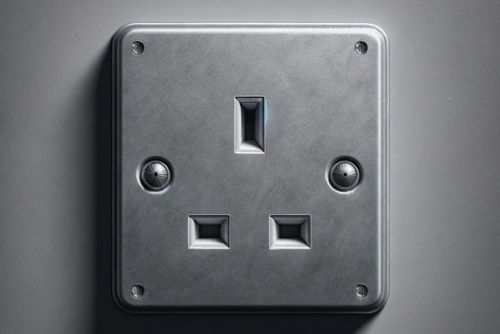
A special type of outlet, the ground fault circuit interrupter (GFCI) outlet is usually installed in rooms that experience moisture such as bathrooms and kitchens. These outlets can protect you from electrical shocks and can act as a mini circuit breaker, interrupting the flow of electricity to keep you from being shocked if an electrical item you are using connects with water.
If you need electrical assistance, whether its an issue with your electrical system or you are looking to have something installed, contact us here at HedgeHog Electric.

